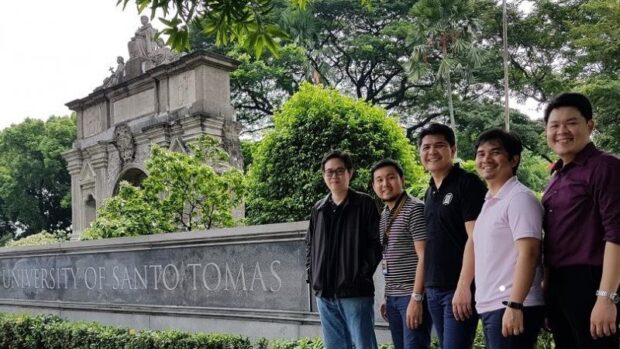Upskilling with UK-PH Transnational Education: A practical path to global credentials
Across the globe, the younger generations are looking to pursue higher education and attain global credentials in order to better their personal and professional advancements. However, most of them face obstacles and challenges, including academic pressure, time commitment, and economic bias. For Filipinos, transnational education (TNE) could hold the answer.
What is Transnational Education?
An alternative to the traditional studying abroad route, TNE is typically a partnership between a foreign university and a local institution in the student’s home country. This means you don’t need to spend your time entirely abroad to finish the programme. For example, students can study in the Philippines and obtain two qualifications: one from the Philippines and the other from the UK university.
The British Council connects universities from the United Kingdom and the Philippines, allowing them to work together to develop TNE programmes in specialised disciplines that are either unavailable or limited in the Philippines, such as MSc in Robotics Engineering (offered by De La Salle University and Liverpool Hope University) and MRes Tropical Biological Oceanography (offered by Silliman University and Newcastle University).
These niche areas allow Filipino students to specialise in disciplines that are not yet widely available, gaining a competitive edge in their chosen fields while providing them with a global perspective. Moreover, these partnerships provide local universities with more capacities and resources to build the knowledge pool centered on these niche disciplines over a longer term, allowing them to contribute to national sustainable development.
Why choose the UK: Real success stories from TNE Graduates
Wherever you are in the world, having a degree from the UK instantly opens doors. Known for its prestigious universities and high-quality education system, four of the top ten universities in the world are located in the UK (according to the QS World University Rankings 2024).
But studying in the UK isn’t just about receiving an exemplary education. It creates access to valuable work placements and internships, bridging the gap between theory and applied expertise. UK graduates are amongst the most employable in the world because they not only emerge with impressive credentials but also bring real-world experience that resonates with employers worldwide. Just take it from these Filipino TNE graduates who have found success after completing their UK education:
“The TNE programme allowed me to learn more about various cultures,” says Brian James Chiu, an architect and professor at the University of Santo Tomas. “It helped foster a deeper appreciation for different points of view, which is particularly true in education and the academic environment.”
Chiu was part of the first cohort of the dual Ph.D. in architecture programme, a joint effort of the University of Reading and the University of Santo Tomas. “Studying at the University of Reading provided a unique opportunity to gain international exposure, meet brilliant people, and build lasting relationships,” he says.
Sarina Arciga, a professor at Bicol University Tabaco Campus, echoes Chiu’s sentiments. Arciga’s programme, MSc in Advanced Biological Sciences specialising in Sustainable Food Systems, was a joint initiative of the University of Liverpool and Bicol University.
Apart from providing Arciga with a wider understanding of how science could be used to address sustainability issues, the programme also broadened her horizons. “Getting this scholarship introduced me to experiences that are beyond the academic realm,” she says. “I consider myself blessed to be given a life-changing opportunity like this.”
Explore TNE opportunities through British Council Philippines
Borders don’t need to limit anyone’s potential. Graduates of TNE programmes have already proven so. The British Council readily supports Philippine higher education institutions by increasing the accessibility of higher education and bridging the gap in local expertise.
With the British Council continuously working on developing and improving TNE, there are lots of opportunities to further academic expertise, gain international exposure, and attain global credentials for anyone who wants to broaden their perspectives.
To learn more about transnational education in the UK, visit the British Council official website.
ADVT
